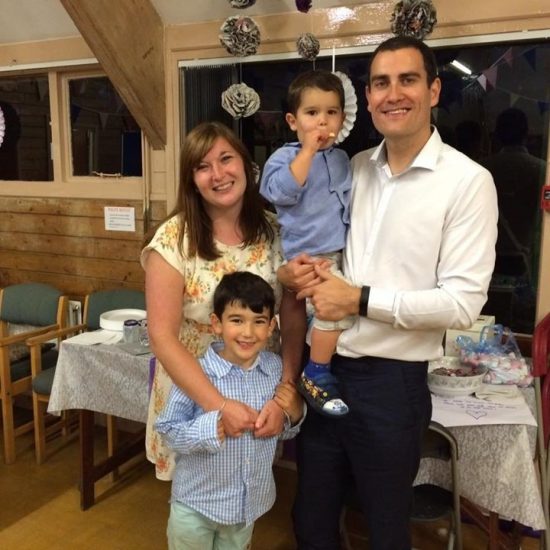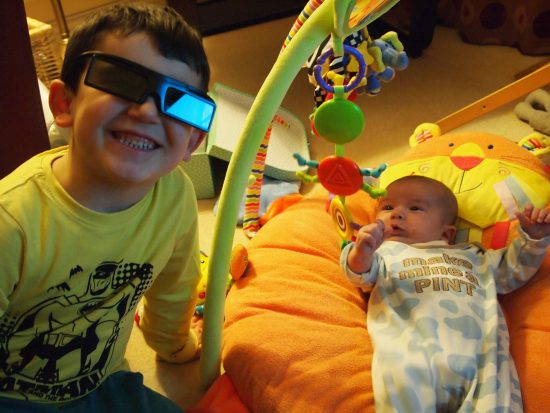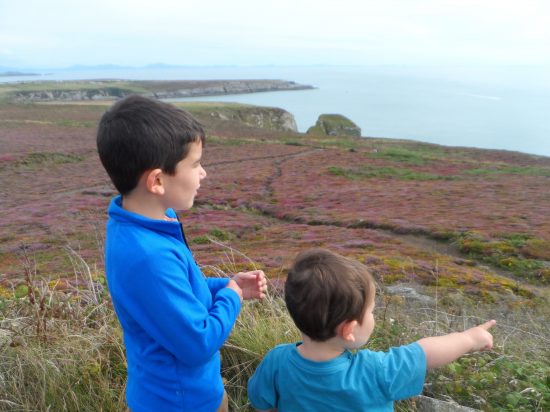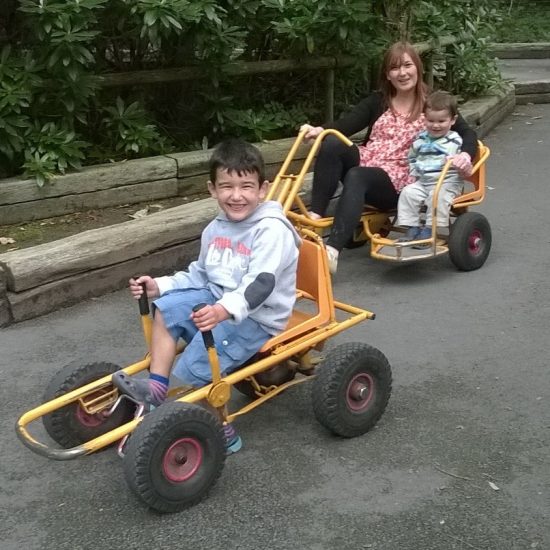Hannah Bissett shares her story of postpartum psychosis and the support and services that helped her recovery.

When I went home after an emergency caesarean birth in September 2009, I struggled to feed my son, which resulted in hospital admission due to his weight loss.
I didn’t cope well and started to obsess about everything, way beyond the usual new mum worries. I struggled to sleep, eat or function due to increasingly obsessive thoughts and behaviour.
More than one in 10 women develop a mental illness during pregnancy or within the first year after childbirth.
If untreated, these perinatal mental illnesses can have a devastating impact on women and families.
I saw a psychiatrist who sent me home with medication, which I refused to take. My memory of this time is hazy, but a few days later I was admitted to hospital and spent a hellish two weeks, which thankfully I don’t remember at all.
By this point I was hallucinating, hearing voices, not eating or drinking, my mood was swinging between highs with screaming mania and lows of barely communicating.
I was separated from my baby and thought something terrible had happened to him and my husband, which I had caused. I lost all touch with reality.
I was transferred to Bootham Park Hospital in York and, after time on the main ward, I went to their Mother & Baby Unit (MBU) where I was reunited with my son.
The support there was fantastic – the staff and environment were enormously beneficial in my treatment and recovery.
I had a named nurse who was a specialist in maternal mental health and the set-up of the MBU was like a flat rather than a ward, which helped with some normality in the hospital environment.
Having periods of ‘leave’ to spend time at home with my family was also invaluable. I desperately wanted to be at home being a ‘normal family’.
I was lucky to get into the unit, as there is a national shortage of 50% of beds needed.
My time in the MBU has given me some amazing memories though, including dressing my son as a Christmas pudding and my husband collecting us on Christmas morning so we could go home and eat dinner as a family before I had to go back to hospital on Boxing Day.
I was really lucky to get into the unit, as there is a national shortage of around 50% of the beds needed.
After three months I went home in January 2010 and had visits from a community nurse who came to my house and supported me with everyday things.
Most importantly to me, she took me out for coffee and cake! It sounds like a trivial thing, but I loved it. Having people see me with my baby as a ‘normal’ mum, rather than someone in the MBU, was a real breakthrough.
I had to give up my driving license for six months and was still on anti-psychotic and mood stabilising medication, which I continued to take until 2012, although in a reducing dose.
APP leads research into this horrible illness which affects over 1,300 women each year in the UK (one to two in every 1,000 deliveries) and has a sudden onset in the first few weeks after childbirth.
It provides peer support through an online community and one-to-one emails with women who have recovered from postpartum psychosis and partners who have been affected by it.
I returned to work when my son was nine months old. This was a huge challenge, especially whilst still on medication.
I had also lost all confidence, not only as a mum but as a person, which took some time to rebuild.
I became involved with the charity Action on Postpartum Psychosis (APP) as a volunteer after my experience of postpartum psychosis.
In the time since I was ill, it’s been a great source of information and support from women who have ‘been there’.
Through supporting women myself who are in their early stages of recovery from this illness, I also gained more insight into this strange and unusual illness which struck me out of the blue after no previous problems with my mental health.

Our second son, Reuben, was born in November 2013.
I struggled to access any mental health services, but my GP was fantastic and has been throughout.
We wrote a care plan as well as the traditional birth plan, which included elements of my history, triggers, symptoms and how best to support me in pregnancy and birth.
At that time, there was no specialist perinatal mental health support where I live in North Yorkshire.
When I was six months pregnant, and still waiting for mental health input locally, I had a consultation with a perinatal psychiatrist in Cardiff, who I knew about through my involvement with APP.
Although I was not his patient, he advised us on the best course of action, including taking medication after giving birth. He also wrote to the midwife and hospital, which was really useful in pulling everything together officially.
There was a 50:50 chance I would become ill again, but with everything in place and a bit of luck, I remained well and had no recurrence of postpartum psychosis.
I was able to enjoy and remember those first weeks and months. This is something that I didn’t have when my eldest son was born.
NCT is a member of the Maternal Mental Health Alliance. This is a coalition of professional and patient organisations committed to improving the mental health of women and children in pregnancy and the first postnatal year.
Sadly the MBU at Bootham Park closed in 2011 and the hospital closed completely in 2015. This is, of course, a huge issue locally.
If I had become ill again after my second baby, I would have had to travel to Leeds or Northumberland for a specialist unit as there are simply not enough of these valuable units in existence today.
There is some good news though. I spoke at the launch of the Yorkshire & Humber Outreach service run from Leeds MBU last year. Additional units will be in place over coming years in four UK areas.
However, some people still have to travel long distances to access them and there’s no provision in Wales or Northern Ireland.
The #MBUWales campaign is gathering pace and APP continues to support this through dedicated and passionate Regional Reps in Wales.
Additionally, there is a Five Year Forward View for Mental Health with funding from NHS England. The aim is for at least an additional 30,000 women each year to receive evidence-based treatment, closer to home, when they need it by 2020/21.

Awareness and stigma around mental health still remains, although things are getting better.
The involvement of Prince Harry, Prince William and Princess Katherine in Heads Together and the recent launch of the Out of the Blue films from the charity Best Beginnings created a lot of media interest.
In July 2014, a campaign was launched called Everyone’s Business, which involves the Maternal Mental Health Alliance and APP.
In the UK, mental illness among pregnant and postnatal women often goes unrecognised, undiagnosed and untreated. There is patchy provision of services to support women at this crucial time.
Phase 2 of Everyone’s Business has recently launched and there is no doubt that huge leaps have been made in recent years.
But there is still much to do and improve so that every woman can access perinatal services – no matter where they live in the UK.

In April 2017, after two years of increased voluntary involvement with APP, I have now moved into a paid role as Peer Support & Regional Reps Co-ordinator.
For me, meeting other women who’ve had and recovered from postpartum psychosis has been a big breakthrough in knowing I am not alone.
Having had, and recovered from, a severe postnatal mental illness I am lucky to be able to talk about it and raise awareness of a terrible illness, for which some people don’t receive help in time.
We’re raising awareness about perinatal mental health by providing information through our courses and online information and we’re also piloting a peer support project, Parents in Mind, offering direct support to parents experiencing mental health problems.
